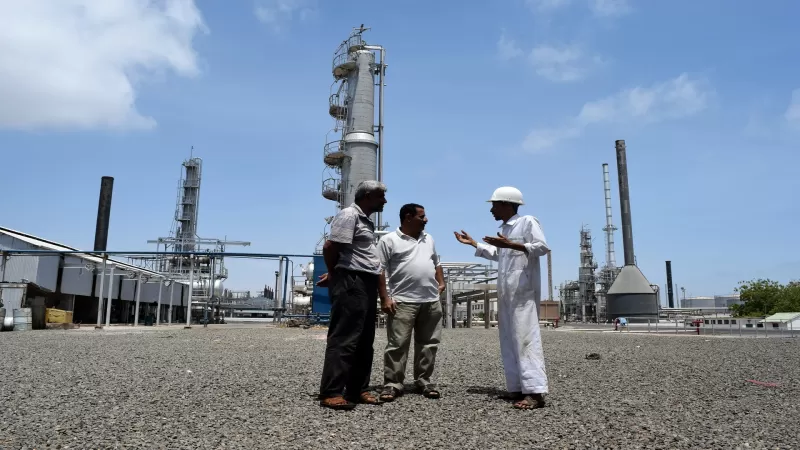
The meeting of the Presidential Leadership Council revealed fears of catastrophic repercussions as a result of stopping oil exports, as a result of the recent attacks launched by the terrorist Houthi militia on export ports.
According to what was published by the official "Saba" agency, the Presidential Leadership Council discussed, in a meeting, on Saturday, in the presence of the Prime Minister, the proposed government policies to manage the repercussions of stopping oil exports and limiting their disastrous effects on food security, living conditions and services.
Last Monday, Houthi militias targeted Al-Dhaba oil port in Hadramout, during the process of shipping quantities of crude oil to an oil tanker, in an attack that is the fourth of its kind against oil export ports.
A day after the attack, the governor of Hadramout, Mabkhout bin Madi, announced that the port of Al-Dhaba would be closed for some time to repair the damaged infrastructure and strengthen the air defenses of the port, according to the Saudi English-language newspaper Arab News, which confirmed that the closure of the port exceeds a month.
The governor added, "The Houthi drones require jamming tools and intense firing at close distances," stressing that the port will reopen once it is confirmed that the defenses can confront drones, missiles, or anything else, he said.
Meanwhile, media sources indicated that the recent attack against the port of Al-Dhaba led to significant damage to the floating pipeline through which oil is pumped from tanks to cargo ships, explaining that the repair cost exceeds $30 million, and the process may take about two months.
Specialists point out the great damages and heavy losses caused by the stopping of oil production from the fields as a result of the continued cessation of oil exports for more than a month, and the damage it causes to pipes, devices and machines, which subsequently require a comprehensive and very expensive maintenance process in the event of the resumption of the production and export process. As happened with the cessation of export and production in 2015, due to the outbreak of war.
In addition, the most important repercussions remain related to the impact of stopping oil export revenues on the fragile economy in the liberated areas, as well as on the government's ability to pay salaries and provide services, as they constitute about 68% of total public revenues, according to a report issued by the bank for the first half of this year. 2022
While oil export revenues constitute one of the important sources of hard currency, which raises concerns about the stability of the local currency during the coming period, which threatens to increase inflation rates due to the rise in prices of goods and services, which puts the Presidential Council and the government in front of a difficult challenge to face these repercussions.
